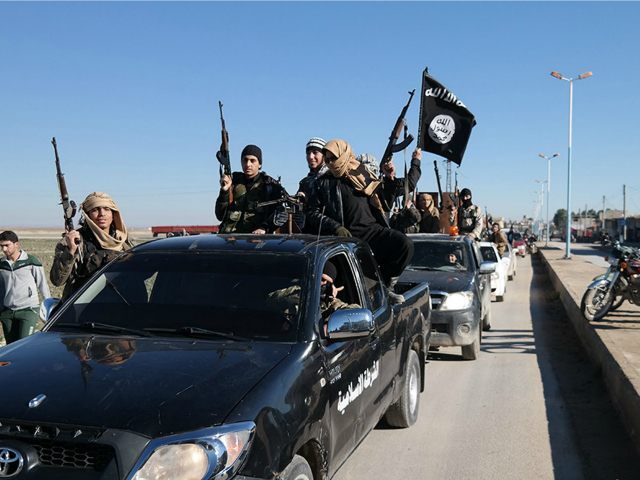The preferred administration narrative about the Orlando terror attack, and other atrocities perpetrated in the U.S. and Europe, is that the Islamic State is desperately lashing out in its death throes.
Weaker than ever, on the verge of getting wiped out in both Iraq and Syria, routed with surprising speed in Libya, the Islamic State can do little except scream at their supporters in the West to commit murderous acts on their behalf.
That is not what CIA Director John Brennan told Congress on Thursday. Brennan portrayed the Islamic State as sending reinforcements westward — taking advantage of loose immigration policies, weak borders, and the migrant tide pouring out of the Middle East — to bulk up their carefully-constructed terror networks.
“Unfortunately, despite all our progress against ISIL on the battlefield and in the financial realm, our efforts have not reduced the group’s terrorism capability and global reach,” said Brennan, as quoted by CNN.
Brennan explained that the “resources needed for terrorism are very modest,” so the Islamic State would have to lose a great deal more “territory, manpower, and money for its terrorist capacity to decline significantly.” He noted that despite a concerted effort to hit the Islamic State’s oil and financial infrastructure, it was still raking in millions of dollars in revenue every month.
“In fact, as the pressure mounts on ISIL, we judge that it will intensify its global terror campaign to maintain its dominance of the global terrorism agenda,” Brennan warned.
The CIA Director said ISIS is “training and attempting to deploy operatives for further attacks.” They already have a “large cadre of Western fighters,” and they are looking for ways to get more operatives into the United States and Europe, “including refugee flows, smuggling routes, and legitimate methods of travel.”
That does not sit well with President Obama’s mockery of those with concerns about refugee screening as “scared of widows and orphans coming into the United States of America.” Now we have Obama’s CIA director telling Congress that ISIS is very much interested in doing exactly what Obama’s critics are worried about.
Brennan’s advice for dealing with the problem included what CNN describes as encouraging “technology and communication companies to better collaborate with law enforcement,” because “encryption was allowing terrorist groups and their sympathizers to communicate clandestinely.”
He further lamented that terrorists are “taking advantage of the liberties that we’ve fought so hard to defend” by turning social media platforms like Twitter, Telegram, and Tumbler into recruiting tools.
Brennan’s point is well-made, but we have been hearing about much-touted cooperation efforts between Internet companies and the Obama administration for years. There have been many stories about top officials meeting with technology companies to brainstorm ideas for battling online extremism — the most recent was in January.
Why is so little coming from these meetings? Is it because administration officials are still straitjacketed by political correctness, unable to frankly discuss what needs to be done against radical Islam with their private-sector partners? Will each round of testimony before Congress by intelligence officials include urgent advice that we must begin doing something the Obama administration has supposedly been doing for years?
One of Brennan’s more provocative observations to Congress is that ISIS remains much more dangerous in Libya than recent news reports implied, suggesting that Libyan officials might have been somewhat overstating their success at pushing into the Islamic State stronghold of Sirte.
Brennan judged the Libyan branch of ISIS as “probably the most developed and the most dangerous” of their operations beyond Syria and Iraq, and he said the CIA believes Libyan ISIS is “trying to increase its influence in Africa and to plot attacks in the region and in Europe.”
The CIA has some numerical estimates of ISIS strength: 18,000 to 22,000 fighters in Iraq and Syria; 5,000 to 8,000 in Libya; 7,000 in Nigeria; and several hundred more scattered across Egypt, Afghanistan, and Pakistan.
McClatchy News notes that Brennan described the ISIS operation in Egypt’s Sinai Peninsula as “the most active and capable terrorist group in Egypt,” able to carry out assaults on the Egyptian military and government, in addition to the murder of civilians and foreign tourists.”
He said the Yemeni branch of the Islamic State was “riven with factionalism,” while the Afghan-Pakistan branch was bloodied and divided after contending with the Taliban.

COMMENTS
Please let us know if you're having issues with commenting.